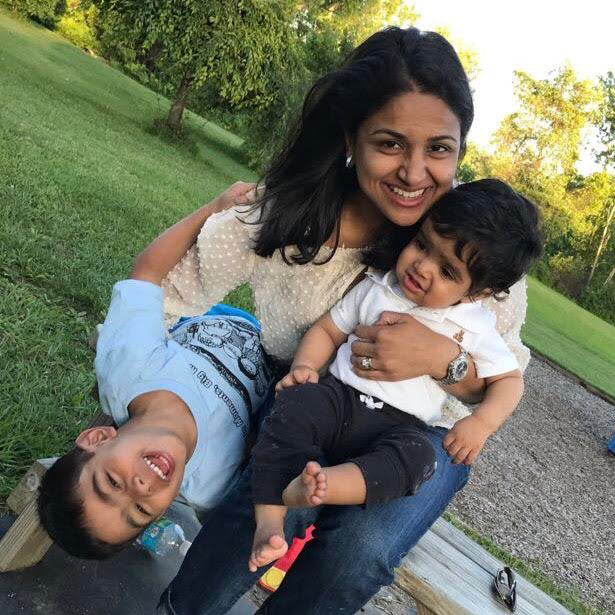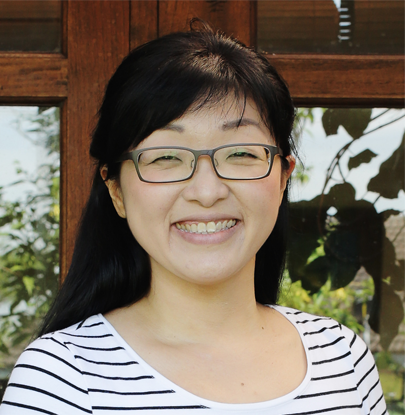A significant shift in my parenting took place when I visited the city of Reggio Emilia. I was working on establishing Anyaman Preschool with my partners in Kuala Lumpur, and we had traveled to this northern Italian city to learn about the unique approach to early childhood education for which its preschools and infant-toddler centers are famous. What I saw there not only inspired me as an educator, it has also become a way of redirecting my parenting back to a place of joy each time it falls into a place of stress and self-doubt. Out of the many intertwined lessons from our trip, the following three resonated most strongly with me:
Conversations
In the Reggio approach, what children say is given utmost importance. Teachers take notes on and record class conversations to review and replay in their team meetings. The goal is to learn about the children’s interests and curiosities, and lessons and projects are inspired directly by them. But how do such young children have such deep conversations with each other and their teachers? The answer lies in the teachers’ perception of the purpose of these conversations.
As a mother I can sometimes overthink my interactions with my son; trying to find the perfect words when speaking to him so that I impart maximum knowledge, help him think critically, develop his higher order thinking skills, or any number of things that many of us parents aspire to offer our children. But all this is based on the idea that I am the giver and he is the taker in our conversations. Interestingly, the Reggio approach starts with the premise that we as adults can seek to learn from the child when speaking with him.
For example, if my son begins a conversation wondering about a tree trunk, my tendency may be to seize this “teachable moment” and explain the scientific purpose of the trunk as structural support and a nutrition transport mechanism for the tree. But then I lose the opportunity to discover what his mind perceives this brown, long cylinder to be. Even if I ask him questions that direct him to the function of the trunk, I have set the agenda of the conversation and thus constrained it. If my goal remains to be curious about my child’s mind, his imagination, and his emotions, then I will be willing to follow the conversation wherever he may take it, recognizing the potential for children to arrive at remarkably comprehensive understandings of the world, co-constructing knowledge with those around them.
When I began to see my conversations with my son as a means of knowing him better, it not only took away the stress from the “work” of parenting, it also began to create a closer relationship between me and him that was deeply intellectual and emotional. I try to carry this curiousity about his mind across our conversations, whether the topic is monster trucks or where poop comes from. Of course this is not to say that there aren’t still conversations that simply start and end with less thoughtful words such as, “Please put on your pants!

Pace
A hallmark of the Reggio approach is the undertaking of long-term projects by students over the course of weeks, even months, to explore a topic or theme in which the children have expressed an interest. The projects encourage and require children to take their time exploring materials, asking questions, having conversations, and creating art and writing related to the topic. The projects cannot be hurried because the children drive them.
By contrast, the phrase “Jaldi! Jaldi!” (Urdu for “Hurry! Hurry!”) was a permanent refrain in my interactions with my son. No matter how early I begin my preparation to head out of the house, my son needs to be pulled away from a Lego airplane that is not quite finished or even from that dangling thread in his sock that is infinitely more interesting than actually putting on the sock. The Reggio approach made me question my push to rush my son during transitions. Although my son’s schedule of gymnastics classes, swimming lessons, and play dates placated my anxiety about providing him enough stimulation, it rushed our pace of life. After Reggio, I became more aware of allowing my son to set the pace as often as possible. To be sure, there are times where we must make it to a doctor’s appointment on time, but I ferociously guard a few post-preschool afternoons every week where he has nowhere to be and nothing to do except hang out with his younger brother and me. I have definitely not said my last “jaldi jaldi”, but my sons and I have a relationship of more joy when I am not always playing the timekeeper.
Community
Reggio preschools and infant-toddler centers were created by and cater to the local families of the city. I saw the community’s investment in children everywhere in Reggio: from the furniture that parent volunteers had built in one of the preschools to the local recycling center collecting and offering free supplies for children’s school projects. This level of formalized communal dedication to children’s education and development is rare in many parts of the world. And as modern life pulls apart many extended families, the informal family structures that used to help parents are also fading away. It is increasingly common for parents, and more often than not, mothers, to shoulder the responsibility of raising a child on their own.
When I visited Reggio, I was living half way across the world from my family and my son’s closest set of grandparents was a seven-hour flight away. I was envious of the support Reggio families had, but I also started to feel less stress and guilt about the fact that I did need help as a parent. Seeing the whole village raise a child, I started to be convinced that it was not only acceptable for many adults to be involved in the care and education of a young child, but that it was preferable for the child’s development.
As a teacher I can work with my students in ways that I cannot always with my sons. When the demands of full-time parenting are overwhelming, I can be too emotionally tangled in my child to fully have a meaningful conversation or to allow him to set the pace of the moment. But in my professional work I have the emotional distance to give of myself intellectually more consistently. So, I seek other adults who can offer this to my children. By sharing this work I do not create a deficiency in my sons’ development, instead I enrich it. Over the years, I have found such support through playgroups, neighbours, friends, family, and nannies, and I believe my children’s emotional and intellectual lives are richer for it.
Seeking to know my sons better through conversations, slowing down the pace of our life, and finding others to share in my parenting work brings more joy to my relationship with my children. I believe a more joyful relationship with me is the best preparation I can offer them for a lifetime of healthy relationships with themselves and others around them. And that, above all, is what I wish for my sons.












